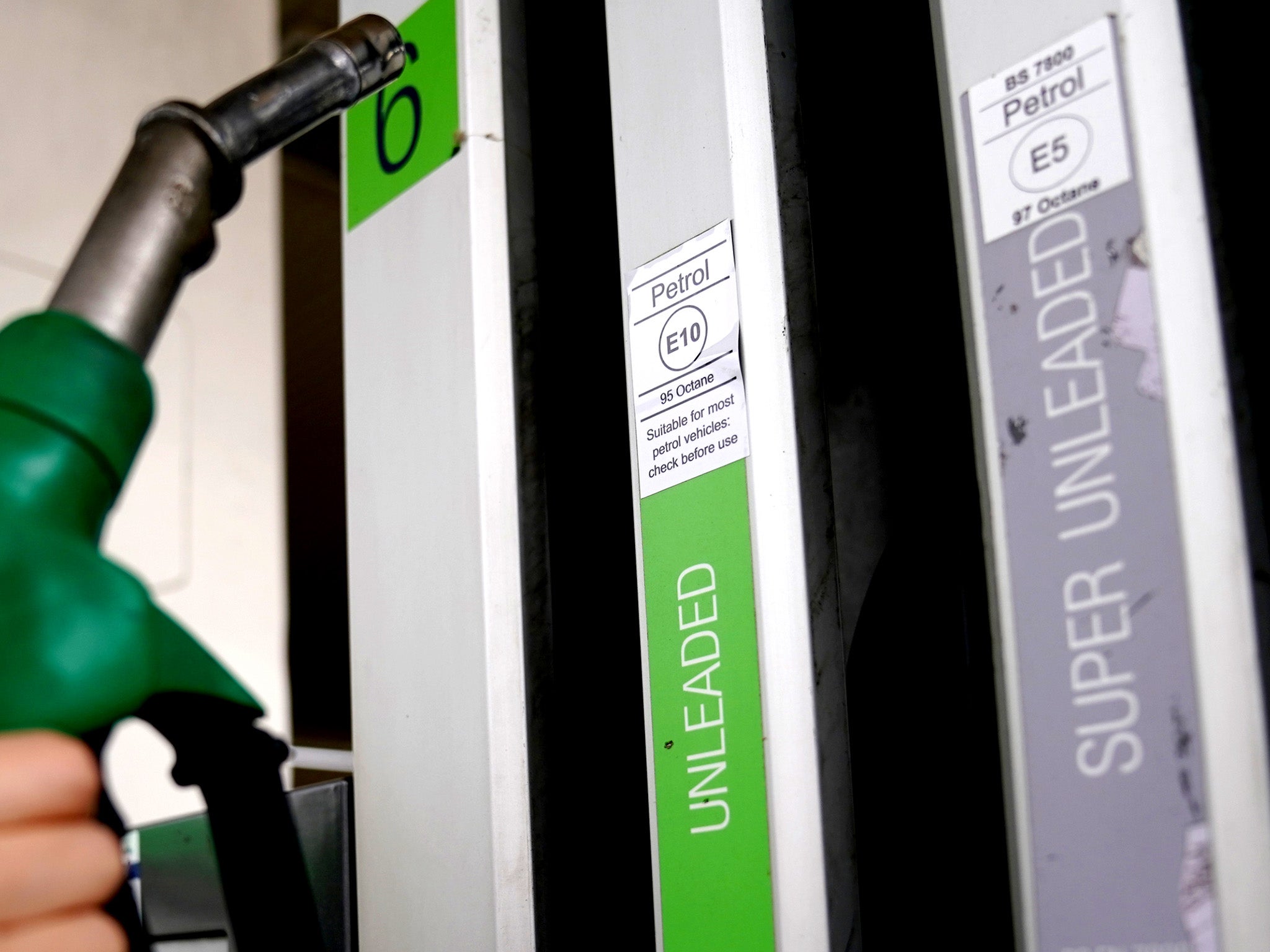E10 fuel: What is the new petrol and what cars will it not work in?
Drivers were left in the dark about the switch to the greener fuel
What is E10 fuel and why the change?
E10 is a greener blend of petrol than the standard E5 fuel that Britain has been using for years. It contains a higher percentage of renewable fuel, bioethanol, than the current E5 mix, which means lower carbon emmissions. The ethanol is produced by fermenting plants such as wheat, corn and sugar beets into alcohol.
The UK rolled out E10 fuel at petrol stations across the country on 1 September. Northern Ireland is set to switch in early 2022. The Department for Transport (DfT) made the move as part of the government’s plan to reach net-zero carbon emissions by 2050.
Britain’s switch to E10 follows 15 EU countries including France, Germany and Finland, where the fuel has long since been the standard. Most cars in the US and Australia run on E10 too.
On the day of the UK switch around one-quarter of drivers were not aware the change had been made, even more did not know whether their car would be able to run on the new fuel.
Which cars will it work in?
Most of them. The government said more than 95 per cent of petrol vehicles can run on E10 fuel. An impact assessment carried out by the DfT last year estimated 600,000 cars and motorcycles would not be compatible.
All Ford cars made since 1992 are compatible, bar a 2003-2007 model of Mondeo. All BMW models are compatible. As are all Volvos, Nissans, Citroens, Hondas, Peugeots and Minis made from 2000 onwards. Land Rovers from 1996 and almost all Toyotas from 1998 will run. Saab has been making all its cars compatible since the mid-1980s. Volkswagen since 2007. Audi since 2009.
In short, most cars by most brands will run on E10 fuel. If in doubt, the government has a tool for checking compatibility online. Highly recommended for drivers of classic cars and brands not mentioned above, such as Fiats.
Will it cost more?
The DfT estimated that the price-at-pump would drop by 0.2 pence per litre. The drop in price was however expected to be offset by the lower miles per gallon that E10 can offer.
Fuel prices actually dropped by more than ten times the government estimate, and were down 2.4p in the week leading to the switch. Prices dropped again on 1 September, the day of launch, due to the impact of Hurricane Ida on US fuel production, according to the AA.
The motoring association's fuel price spokesman Luke Bosdet said such a drop in costs would have triggered a “price pump war” in the days before the pandemic. “If the wholesale price remains where it is or falls further, we will shortly find out how much fuel retailers now value their customers,” he said.
At the petrol station, drivers will be able to get E10 from the regular unleaded pumps while E5 fuel will be relegated to the super unleaded pumps. The RAC said the price of E5 will be up by around 12p a litre.

Will emissions plunge?
They should fall, a little. Passenger cars account for about 20 per cent of greenhouse gas emissions in the UK. The government says the switch to E10 could reduce emissions by the equivalent of taking 350,000 (E5 fuelled) cars off the road. That would be less than 1 per cent of the nearly 40 million licensed vehicles in the UK.
Taking 350,000 cars off the road, along with the 488,000 licensed Ultra Low Emissions vehicles (mainly electric and electric hybrid cars), would bring the UK’s capacity for emissions from road transport down to the level of early 2017. Incidentally, the growth of electric and electric hybrid vehicles since that time outstrips the 350,000 cars that E10 could account for.
In fairness to the DfT, the E10 switch was not pitched as the greatest green innovation of a generation. In a statement as the switch took place, Grant Shapps, the transport secretary, called it merely a “step we can take today” towards meeting the government’s net-zero target and placed it in the context of the more impactful, but more gradual, switch to electric vehicles.
Join our commenting forum
Join thought-provoking conversations, follow other Independent readers and see their replies
Comments
Bookmark popover
Removed from bookmarks